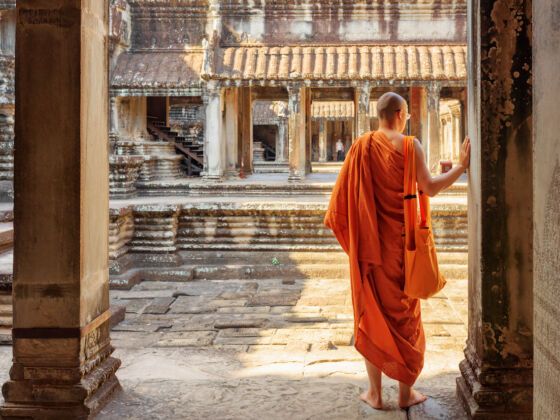OVER HIS NAKED right shoulder, an enormous gold Buddha. Sol Mang waves me over like he is hailing a cab, but can’t find it in him to make the proper emphatic New York gesture. He waves the way you’d expect a Cambodian rice farmer turned Khmer Rouge slave turned monk turned New Yorker to wave.
The uncertain movement of a man whose life was shaped by cruel uncertainties. He wants me to meditate with him in this Bronx room transformed into a Cambodian Buddhist temple on Marion Avenue. I grew up a few blocks from here, but I have never been further from home in my life.
